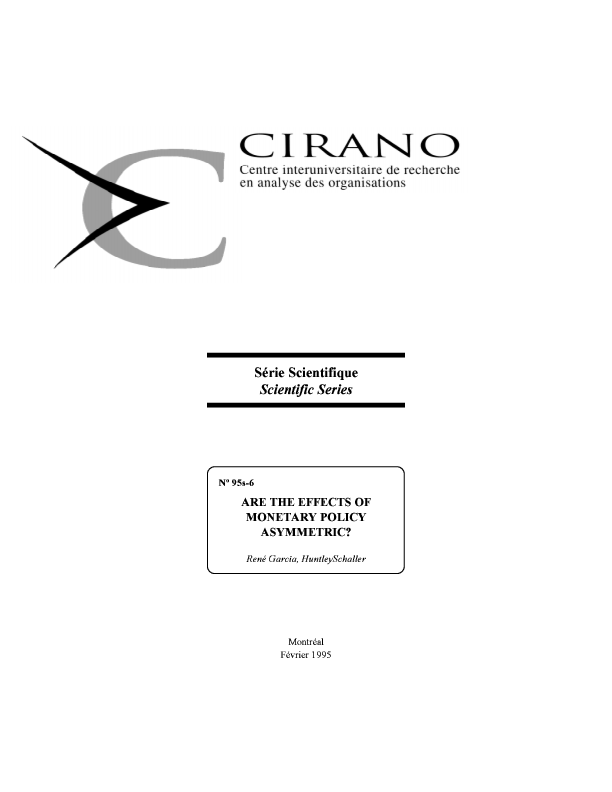Are the Effects of Monetary Policy Asymmetric?
This paper focuses on whether monetary policy has asymmetric effects. By building on the Markov switching model introduced by Hamilton (1989), we examine questions like: Does monetary policy have the same effect regardless of the current phase of economic fluctuations? Given that the economy is currently in a recession, does a fall in interest rates increase the probability of an expansion? Does monetary policy have an incremental effect on the growth rate within a given state, or does it only affect the economy if it is sufficiently strong to induce a state change (e.g., from recession to expansion)? We find economically and statistically significant evidence of asymmetry. As suggested by models with sticky prices or finance constraints, interest rate changes have larger effects during recessions. Interest rates also have substantial effects on the probability of a state switch.
[ - ]




